 As publishers, we get sent a lot of books. But that’s OK because we’d be in trouble if people didn’t send us their books. It would be nice if I could say that all those books are great, and we can’t wait to be able to get them uploaded and out there with the reading public. Unfortunately, we can’t say that. I would estimate that perhaps 50% of what we are sent is never going to get published; not by us and not by any other reputable publisher, large or small. It usually takes us less than an hour of reading to make that decision. About half the rest start off well but then start to run out of steam, usually around the 30 to 40,000 word point. It was probably around that point that the author realised that writing a book wasn’t quite as easy as they had thought, but they kept ploughing on anyway, in the hope that something great would come out of it. Sadly, it didn’t, but it will take us maybe 2 – 3 hours to decide to pass on those books.  Finally, we get to the 20% to 30% of books that stand a real chance of finding readers. Those are the ones where we invite the author to work with us to try to get the book into its best possible version before we finally publish it. Some authors then pass, because they think their book is good enough already and doesn’t require our interference, or maybe they think they can get a better deal elsewhere (and maybe they can). But if a book is on our website it’s because the author has been more realistic and understands that all work can be improved, even if it is only a little bit. Just once in a while we get a book sent to us that we know from page 1 is going to be good. How do we know that? Because we get so absorbed in it that someone has to tap us on the shoulder and remind us that it’s time to pack up work for the day. Even then we’ll upload it onto a tablet so we can keep on reading it on the way home (but not if we’re driving). "Character = Conflict = Plot" Those books may be rare, but when we analyse what they have that other books don’t have, it usually comes down to just 3 things.
You will notice that I haven’t mentioned the plot. That’s because the plot is not the main driver of our engagement with the story. The protagonist and the problem(s) they face are what hooked us: character + conflict = plot. You will also notice that I mentioned the antagonist as being one of the 3 things that hooked us. Antagonists don’t get many mentions in blogs about writing and that’s a shame, because without an antagonist you only have half a story. Where would James Bond be without Goldfinger or Blofeld? Unemployed, that’s where. It is our contention (feel free to disagree) that a well-constructed antagonist is as important to a story as a well-constructed protagonist. For every Snow White, we need a Wicked Queen.  Think of Darth Vader. He starts off as the archetypal antagonist, just bad because he’s bad. But then we find out that he is Luke Skywalker’s father and, all of a sudden, he becomes much more interesting. He becomes so interesting that a considerable proportion of the next 3 Star Wars films are devoted to his “origin” story (Ep I: The Phantom Menace, Ep II: Attack of the Clones and Ep III: Revenge of the Sith). Yet time and again we get books submitted to us with antagonists so one dimensional we feel no emotional interest in them. We need to despise the antagonist in order to make it more important for the protagonist to succeed. But in those stories it is often like trying to despise Wiley Coyote or Elmer Fudd. But I’m getting ahead of myself. Number one in my list was the protagonist. 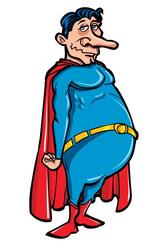 So, what makes a good protagonist? That will vary from genre to genre. For fantasy fiction they are required to be heroic, while for romance the first requirement is that they be attractive in some way (it doesn’t have to be a physical attractiveness). But that is just the surface level. The more complex the character, the more interesting they are. The more interesting they are, the more interest the reader will take in them. And the more interest the reader takes in them, the more likely it is that they will continue reading the book. It is very important that readers continue to read the book. If you are an Indie author, you need those readers to post favourable reviews of your book in order to sell more copies. And if you want to find a publisher, you have to submit a book that the publisher wants to finish reading.  Building complexity into a character, however, isn’t simple. It takes time and it takes an understanding of people. There are a few short cuts that can be taken, tropes as they are known, such as giving them secrets, but the thing that really catches the imagination is their motivation. Why are they doing what they are doing? After all, they could just as easily stay at home with their feet up reading a good book, like the rest of us. The reader has to believe that the protagonist is dealing with the conflict because they have a really strong reason to do so. But that leaves the reader with a gigantic “why” to be answered. And the only person who can answer it is the author. 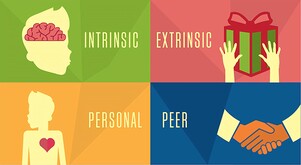 Take Jack Reacher, for example. He is a drifter, a loner, and he doesn’t have to get involved in the problems of others. Yet he always does. He is motivated to help by a range of different things, depending on the plotlines, but the one that recurs most regularly is the desire to fight injustice in whatever form it appears. It may be the injustice of a small business owner having to pay protection money to gangsters, or it may be the injustice of the law not taking a victim seriously. It may be the injustice of the police being too incompetent to find the real criminals. It may even be the injustice of someone being wrongly accused of a crime. But whatever it is, it motivates Reacher to get involved when he really doesn’t have to. So, what motivates your protagonist to get involved when they don’t have to? And why does that motivate them so much? 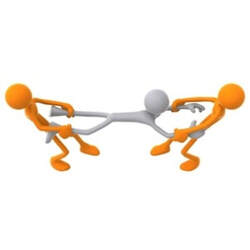 Internal conflict is always good for adding layers of interest to a protagonist. That can be introduced in many different ways, from a lack of self-belief to questions about the morality of what they are doing. It is especially useful when internal conflicts start to impact on whatever goal the character is pursuing. Think about a vegan being attracted to someone who works in an abattoir – can you imagine the complexity of making that relationship work? It doesn’t always have to be as blunt as that example. In fact, subtlety often makes it more interesting, especially if the internal conflict is revealed slowly over the whole book rather than in one big lump, so that the reader says “Ah, now I see what the real problem has been all along”. To really get to grips with both motivation and internal conflict you have to research your character(s). Yes, I know you only just created them, but that doesn’t stop you doing “research” on them. All you have to do is ask the right questions – then answer them. 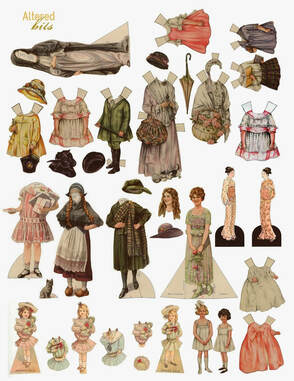 Dress your characters. Dress your characters. Start with their parents: were they loving, cruel, dismissive, encouraging or even absent? Parents are the first influence on a child and therefore the first to influence your character’s personality when they are older. From there you can move onto teachers, peer groups, young adulthood and the dreams and aspirations that come with it. For older characters, the age of Jack Reacher for example, you may want to continue that research into their 20s and even 30s. You dress your characters with their life experiences, their beliefs and their values the same way as you dress them in their clothes, and those things then provide their motivation and/or internal conflicts. If they fight injustice, then what is the injustice they suffered that makes them want to do that? If they are on a quest, what is it they are seeking to find out about themselves along the way? If they are afraid of starting a romantic relationship, what happened in their past that makes them so afraid now? I’m not going to ask all the possible questions; you are the author, they are your characters, you need to ask the questions. But the better the questions you ask, the better your characters will be.  And the same applies to antagonists. We are familiar with the surface level motives of antagonists: love, hate, jealousy, greed, lust for power, revenge, etc. But no one is born seeking revenge. No one is born jealous. No one is born lusting for power. So, what was it in their life that changed them and gave them those surface level motivations? What happened to make a “normal” human being want to rule the world? 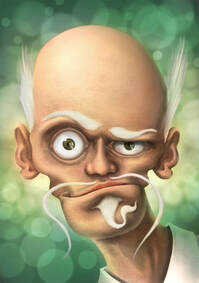 You can throw in psychological motivations, such as psychopathy, sociopathy, narcissism megalomania, paranoia etc but even they require some sort of explanation. If you are going to use them you will need a good grounding in psychology and/or mental health so that you can understand what your antagonist’s backstory has to look like in order for them to suffer from those forms of psychological disorder. If you can come up with two complex characters (protagonist and antagonist), you are going to come up with a complex, layered conflict between them that holds the reader’s attention and has them crying out for more. And if you can come up with those 3 elements, you are going to find a publisher who wants to publish your book. If you have enjoyed this blog, or found it informative, then make sure you don’t miss future editions. Just click on the button below to sign up for our newsletter. We’ll even send you a free ebook for doing so.
0 Comments
Leave a Reply. |
AuthorThis blog is compiled and curated by the Selfishgenie publishing team. Archives
June 2025
|
 RSS Feed
RSS Feed